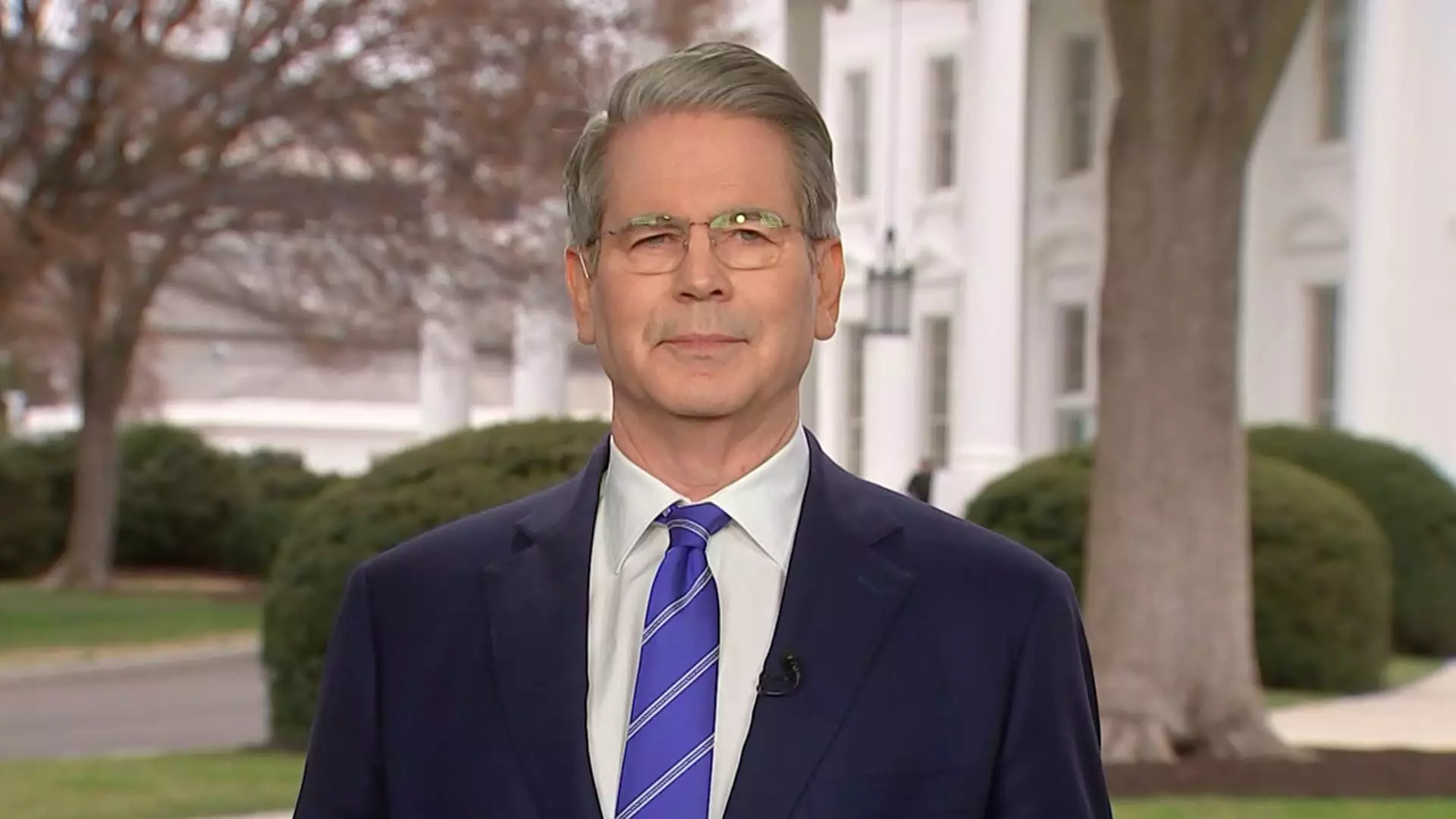As the United States teeters on the edge of a fiscal precipice, Treasury Secretary Scott Bessent’s recent statements provoke a chilling realization: the alarms of a potential financial crisis are being ignored by those in power. His claim that the Trump administration is “resetting” for sustainability is almost laughable, given the financial rollercoaster the country has been on since he took office. The urgent, and somewhat desperate, attempts at fiscal reform—such as creating the ludicrously named “Department of Government Efficiency,” spearheaded by Elon Musk—reek of ad-hoc solutions rather than a coherent strategy.
The Myth of Efficiency
The innovative spirit embodied by Musk is commendable, yet applying entrepreneurial tactics to government may be a case of misplaced faith. Job cuts and early retirement incentives may temporarily ease budget concerns, but they also jeopardize crucial services that the government provides. Government efficiency cannot solely be achieved by slashing jobs without assessing the long-term consequences. The very notion assumes that a leaner government can operate effectively, a belief that neglects the need for a robust public sector that plays an instrumental role in economic stability.
Debt: The Elephant in the Room
Bessent’s admission that the U.S. debt and deficit issues are worsening is an unsettling truth that many leaders seem unprepared to confront. Claiming to ward off a fiscal catastrophe while consistently surpassing the trillion-dollar budget shortfall is contradictory at best. If we are indeed “resetting” the framework of our economy, why do the numbers reflect the opposite trajectory? The burgeoning debt undermines any narrative of progress; it is a ticking time bomb that no amount of deregulation or tax policy can diffuse.
Market Volatility: Illusion of Control
Bessent’s assertion that market corrections are “benign” provides a false sense of security. He implies that volatility is a natural component of our economic landscape, yet fails to acknowledge that unchecked fluctuations may of themselves spell disaster. With the S&P 500 experiencing a significant downturn, the trope of healthy corrections begins to sound like a siren’s song, luring investors into a false comfort. True economic resilience cannot be predicated on ephemeral market trends that can sway with the unpredictable winds of political decisions.
The Forecast: A Precarious Future
The current economic narrative, emphasizing Trump’s pro-business strategies, is built on a foundation of denial. The emphasis on tax policies and deregulation overlooks one crucial aspect: sustainability. Beyond rhetoric, we must focus on creating a balanced, equitable economic framework that supports not just the stock market but the populace at large. As inflation concerns surge and fears of a recession loom, the stakes are painfully high. The path forward must be paved with thoughtful governance rather than drastic measures that risk leaving the average American in the lurch.
In the end, if the nation continues down this perilous trajectory, it may soon confront not just a recession but a full-blown economic collapse—one that could reverberate for generations. Rage against the spinning wheels of economic triviality. The future deserves more than fleeting fixes.


Leave a Reply